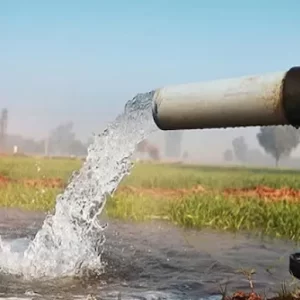Description
EPR for Plastic Waste Management: PIBO/PWP
Plastic pollution poses a significant threat to our environment, with plastics often ending up in oceans, rivers, and landfills. Recognizing this issue, the CPCB has developed a comprehensive framework for Plastic Waste Management under the Plastic Waste Management Rules, 2016. Manufacturers and brand owners involved in the production and usage of plastics must adhere to EPR guidelines.
EPR registration with CPCB for Plastic Waste Management, with the expert guidance of Aquagreen Tech Solutions, involves:
Responsibility for Collection and Recycling: Producers are mandated to establish and finance a system for collecting, recycling, and disposing of post-consumer plastic waste. This ensures that plastic waste is properly managed, reducing its harmful impact on the environment.
Annual Reporting: Registered producers must submit annual reports to CPCB detailing the quantities of plastic generated and collected, ensuring transparency and accountability.
Financial Contributions: Producers need to provide financial support for the development of waste management infrastructure, including recycling plants and collection centers.
Awareness and Training: Producers are encouraged to raise awareness among consumers and provide training to waste collectors and recyclers, furthering the cause of plastic waste management
EPR for E-waste: Producer
Electronic waste (E-waste) is a growing concern due to the rapid advancement of technology. EPR for E-waste registration with CPCB ensures that electronic product manufacturers and importers are responsible for the proper disposal and recycling of electronic products at the end of their life.
EPR registration with CPCB for E-waste, involves:
Collection and Recycling Infrastructure: Producers are required to establish a robust system for collecting, recycling, and disposing of end-of-life electronic products, thus preventing hazardous materials from entering the environment.
Compliance and Reporting: Registered producers must adhere to environmentally sound recycling practices and submit annual reports to CPCB, disclosing the quantities of E-waste generated, collected, and processed.
Consumer Awareness: Producers are encouraged to educate consumers about the safe disposal of electronic products and the benefits of recycling.
EPR Compliance Audits: CPCB conducts periodic audits to ensure compliance with EPR regulations, promoting transparency and accountability, with Aquagreen Tech Solutions aiding in the preparation and compliance process.
EPR for Battery Waste: Producer
Battery waste management is crucial for mitigating the environmental impact of hazardous chemicals present in batteries. CPCB has established EPR guidelines for battery waste management to hold manufacturers accountable for proper disposal and recycling.
EPR registration with CPCB for Battery Waste, in collaboration with Aquagreen Tech Solutions, involves:
Battery Collection and Recycling: Producers are responsible for setting up collection and recycling mechanisms for used batteries, preventing the release of toxic substances into the environment.
Reporting and Documentation: Registered producers must submit reports detailing the quantities of batteries produced, collected, and recycled, with us ensuring accurate and compliant reporting.
Battery Traceability: Ensuring proper labeling and traceability of batteries aids in responsible recycling and disposal, with we assisting in implementing effective traceability systems.
Battery Recycling Infrastructure: Producers are encouraged to invest in recycling facilities to ensure safe and efficient processing of used batteries, with us offering expertise in establishing and optimizing recycling facilities.
Conclusion
EPR registration with CPCB, in collaboration with Aquagreen Tech Solutions, is a proactive step towards achieving environmental sustainability and combating pollution. Producers engaged in plastic, electronic, and battery product manufacturing can rely on the expertise of our team to navigate the complex landscape of EPR compliance. By doing so, they not only contribute to a
cleaner and safer environment but also meet their legal obligations, positioning themselves as responsible corporate citizens. The CPCB’s EPR framework, combined with the strategic guidance of our expert Team, offers a comprehensive roadmap for achieving these goals and a greener future.





